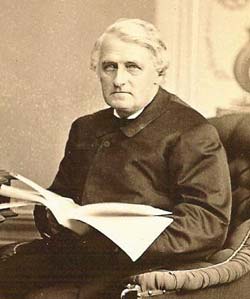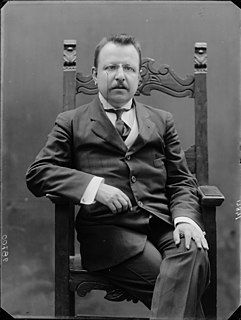A Quote by John Adams
[I]t is religion and morality alone which can establish the principles upon which freedom can securely stand. The only foundation of a free constitution is pure virtue.
Quote Topics
Related Quotes
The form of government which you admire, when its principles are pure is admirable indeed. It is productive of every Thing which is great and excellent among men. But its principles are as easily destroyed as human nature is corrupted. Such a government is only to be supported by pure religion or Austere morals.
Without morals a republic cannot subsist any length of time; they therefore who are decrying the Christian religion, whose morality is so sublime and pure (and) which insures to the good eternal happiness, are undermining the solid foundation of morals, the best security for the duration of free governments.
In his address of 19 September 1796, given as he prepared to leave office, President George Washington spoke about the importance of morality to the country's well-being: Of all the dispositions and habits which lead to political prosperity, Religion and Morality are indispensable supports. . . . And let us with caution indulge the supposition that morality can be maintained without religion. . . . Can it be that Providence has not connected the permanent felicity of a Nation with its virtue?
That the people have an original right to establish, for their future government, such principles as, in their opinion, shall most conduce to their own happiness, is the basis, on which the whole American fabric has been erected.... The principles, therefore, so established, are deemed fundamental. And as the authority, from which they proceed, is supreme ... they are designed to be permanent.... The powers of the legislature are defined, and limited; and that those limits may not be mistaken, or forgotten, the constitution is written.
A free thinker used to be a man who had been educated on ideas of religion, law, morality, and had arrived at free thought by virtue of his own struggle and toil; but now a new type of born freethinker has been appearing, who’ve never even heard that there have been laws of morality and religion, and that there are authorities, but who simply grow up with negative ideas about everything, that is savages.
Politics and morality are inseparable. And as morality's foundation is religion, religion and politics are necessarily related. We need religion as a guide. We need it because we are imperfect, and our government needs the church, because only those humble enough to admit they're sinners can bring to democracy the tolerance it requires in order to survive.
If what was said in the Ethics is true, that the happy life is the life according to virtue lived without impediment, and that virtue is a mean, then the life which is in a mean, and in a mean attainable by every one, must be the best. And the same principles of virtue and vice are characteristic of cities and of constitutions; for the constitution is in a figure the life of the city.





























